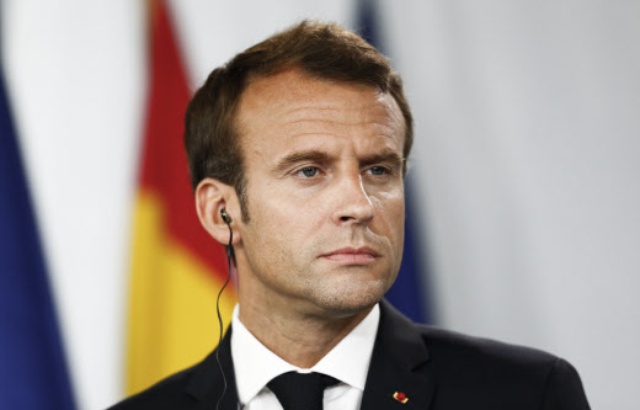Emmanuel Macron Arrives Wednesday in Serbia to Rebuild the Friendship between Paris and Belgrade

DIPLOMACY: The relations between France and Serbia deteriorated on November 11th during the ceremonies of the centenary of the Armistice of 1918, because of a protocol misfire …
After the protocol misfire on November 11, during the centenary celebrations of the 1918 Armistice in Paris, where Serbian President Aleksandar Vucic was placed in a secondary gallery, behind his Kosovan counterpart , many Serbs objected to the arrival of Emmanuel Macron in the country, this Wednesday.
The Serbs had been numerous to protest, pointing out that their country is the one who suffered the most deaths in proportion of its population during the first world conflict, fighting notably alongside the French on the Eastern Front. They were also indignant that President Hashim Thaçi, President of a Kosovo they do not recognise, had been placed in the main stand with Emmanuel Macron , Donald Trump or Vladimir Putin.
“Scandal in Paris! “
“Unfortunate misfortune,” pleaded the ambassador of France in Serbia Frédéric Mondoloni, attracting the thanks of Aleksandar Vucic for his “wonderful words”. Many of the 7.1 million Serbs do not have this leniency and wonder if the historical ties between the two countries are not irretrievably broken. “Paris is no longer the City of Light,” titled the political newspaper Politika, close to power. “Paris red with shame! “Scandal in Paris! The tabloids added.
“It is degrading to put aside the president of a country that has lost such a percentage of its population in this conflict” (1914-1918), indignant Aleksandra Vojvodic, 44, French teacher in Belgrade. “Macron’s visit may make things better, but it’s far from certain. France, like the rest of the West, have long since had their positions “on Serbia,” says Zorica Radovanovic, a 57-year-old engineer with a French-language background.
First head of state since Chirac
France’s April 2017 refusal to deliver Kosovar Ramush Haradinaj, claimed by Serbian justice for war crimes during the Kosovo conflict (1998-1999), had already provoked anti-French access, although than less. Many do not condone France for taking part in the 1999 Western bombing campaign to end the Kosovo war and forcing Serbia to withdraw its troops from its southern province, which is predominantly populated by Albanians. This operation led by NATO remains a deep humiliation for many Serbs. This disenchantment is accompanied by weak economic ties.
A hundred French companies employing nearly 10,000 people are present in Serbia, such as Michelin, Société Générale or Crédit Agricole. But France is only the tenth largest exporter to Serbia and not one of the top 10 importers. Unlike Germany or Italy, it is a minor trading partner. Emmanuel Macron will be Wednesday and Thursday the first French head of state to visit Serbia since Jacques Chirac in 2001, came to Belgrade a few months after the fall of Slobodan Milosevic.
Enjoyed this? Get the week’s top France stories
One email every Sunday. Unsubscribe anytime.


